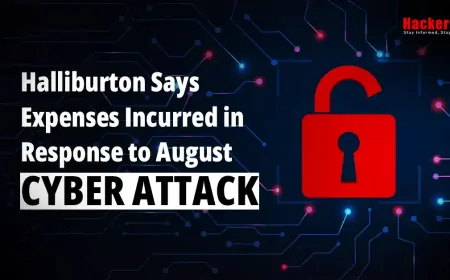What Students Should Learn Before Applying for a Cybersecurity Internship
Landing a cybersecurity internship feels like unlocking a secret level in a game: exciting, but you need the right tools first. As a student, you might picture interns hacking systems on day one, but reality starts with basics like spotting fake emails or understanding networks. With over 3.5 million unfilled cyber jobs worldwide according to Cybersecurity Ventures, companies seek eager learners who grasp fundamentals. I've mentored interns who shone because they prepared smartly, not just with grades. This guide covers essential knowledge, skills, and tips to boost your application. Whether you're in computer science or switching fields, start here to stand out and contribute from the start.

Table of Contents
- Why Preparation Matters for Internships
- Core Cybersecurity Concepts to Know
- Essential Technical Skills
- Soft Skills That Impress Employers
- Familiarize with Tools and Software
- Helpful Certifications for Beginners
- Building Projects and a Portfolio
- Networking and Application Tips
- Common Mistakes to Avoid
- Top Learning Resources
- Key Skills and How to Learn Them Table
- Conclusion
- Frequently Asked Questions
Why Preparation Matters for Internships
Internships bridge school and work. Unprepared students struggle, while ready ones add value, leading to offers. Employers want basics: Know threats like viruses or phishing (trick emails).
Market reality: Entry roles need problem-solving, not expert hacking. Prep shows initiative; a weak resume gets ignored.
Benefits: Confidence in interviews, faster learning on job. Story: A student I knew learned networking basics, impressed at Google intern interview.
Time investment: 3 months focused study lands spots. Balance with classes, aim practical knowledge.
Expand: Cyber evolves; basics like encryption (scrambling data) endure.
Core Cybersecurity Concepts to Know
Grasp the CIA triad: Confidentiality (keep secrets), Integrity (no tampering), Availability (always accessible).
Threats: Malware (harmful software), ransomware (locks files for money), social engineering (tricking people).
Defenses: Firewalls (block bad traffic), antivirus, access controls.
Laws: GDPR (EU privacy rules), basics of compliance.
Ethics: Permission-based testing, report findings honestly.
Why? Interviews ask: Explain a breach like Equifax. Resources: Free NIST guides.
More: Risk assessment spots weaknesses. Study real cases weekly.
Essential Technical Skills
Networking: How data moves, IP addresses, protocols like HTTP.
- Operating systems: Linux commands (ls lists files), Windows basics.
- Programming: Python for scripts, read code snippets.
- Web security: SQL injections (bad code attacks databases).
- Cryptography: Simple encoding methods.
Start small: Install VirtualBox for safe practice. No need mastery, show willingness.
Example: Use Wireshark to view packets, understand traffic.
Depth: Bash scripting automates tasks, handy for logs.
Soft Skills That Impress Employers
Communication: Explain tech simply, write reports.
- Teamwork: Collaborate on projects.
- Problem-solving: Break issues step-by-step.
- Attention to detail: Spot anomalies in logs.
- Adaptability: Learn new tools quick.
Why key: 85 percent breaches human-related, per reports. Practice: Join group studies, present findings.
More: Time management juggles tasks, critical in incidents.
Familiarize with Tools and Software
Nmap scans networks, Metasploit tests exploits safely.
- Burp Suite: Web vulnerability checker.
- Splunk: Analyzes logs.
- Kali Linux: Ethical hacking OS.
Free access: Download, follow tutorials. Labs like TryHackMe simulate scenarios.
Tip: Document usage in portfolio. Employers value hands-on over theory.
Expand: SIEM tools like ELK stack for monitoring.
Helpful Certifications for Beginners
CompTIA Security+: Covers basics, 3 months study.
- Google Cybersecurity Certificate: Free on Coursera.
- Certified Ethical Hacker (CEH): Intro to hacking.
- Network+: Networking fundamentals.
Cost: $300-500, scholarships available. Boost resumes, prove commitment.
Strategy: One cert first, mention prep in applications.
Building Projects and a Portfolio
Hands-on trumps reading. Set home lab: Secure a virtual network.
- CTFs: Capture the Flag games on HackTheBox.
- Blog: Write on learned threats.
- GitHub: Share secure code, vulnerability reports.
- Volunteer: Help nonprofits with basic audits.
Portfolio site: Detail projects, outcomes. Shows application, passion.
Example: Build phishing simulator, learn defenses.
Networking and Application Tips
LinkedIn: Connect pros, post learnings.
- Events: Virtual webinars, campus clubs.
- Resume: Tailor to job, highlight skills.
- Cover letter: Why cyber, what you bring.
- Interviews: Practice scenarios like handling breaches.
Apply broad: Indeed, company sites. Follow up politely.
More: Mentors via Reddit r/cybersecurity.
Common Mistakes to Avoid
Overlooking soft skills: Tech alone not enough.
Weak passwords in apps: Practice what preach.
No questions in interviews: Shows disinterest.
Ignoring news: Miss trends like AI threats.
Fix: Self-assess, seek feedback.
Top Learning Resources
Books: "Hacking: The Art of Exploitation."
- Online: Cybrary, Khan Academy.
- YouTube: NetworkChuck, LiveOverflow.
- Podcasts: Darknet Diaries stories.
- Communities: Discord servers, forums.
Free mostly, 10 hours weekly builds base.
Key Skills and How to Learn Them Table
| Skill | Description | How to Learn | Time Estimate |
|---|---|---|---|
| Networking Basics | Understand data flow | Coursera courses | 2 weeks |
| Threat Knowledge | Common attacks | Read Verizon DBIR | 1 week |
| Linux Commands | Navigate systems | OverTheWire games | 3 weeks |
| Problem-Solving | Analyze issues | CTF challenges | Ongoing |
| Communication | Explain concepts | Blog writing | 2 weeks |
| Tools Usage | Nmap, Wireshark | YouTube tutorials | 4 weeks |
Use this as a roadmap.
Conclusion
Before applying for cybersecurity internships, master concepts, skills, tools, and soft abilities to shine. Prep turns applications into opportunities, building foundations for careers. From networking to projects, consistent effort pays. Resources abound free, so dive in, network, avoid pitfalls. The field needs passionate newcomers; your preparation protects the digital world. Start today, track progress, and land that internship. Stay curious, ethical, and persistent success follows.
Frequently Asked Questions
What basics for cyber internship?
Networking, threats, simple tools like passwords and 2FA.
No tech background okay?
Yes, focus soft skills, basics; many enter from diverse fields.
Time to prepare?
3-6 months, 5-10 hours weekly.
Best first cert?
CompTIA Security+, beginner-friendly.
Projects ideas?
Home lab setups, CTF solves, security blogs.
Programming needed?
Basic Python helps, not mandatory initially.
Find internships where?
LinkedIn, Indeed, company careers, university boards.
Resume tips?
Highlight projects, certs, relevant courses.
Interview questions expect?
Explain phishing, handle breaches, why cyber.
Free resources best?
TryHackMe, Coursera, Professor Messer videos.
Networking how?
Join clubs, LinkedIn outreach, events.
Ethics important?
Yes, internships stress legal, responsible actions.
Paid vs unpaid interns?
Both valuable; paid often competitive, focus experience.
Women in cyber tips?
Join WiCyS, seek mentorship programs.
Mistakes in apps?
Generic resumes, no customization, ignoring instructions.
Online vs in-person prep?
Online platforms suffice, add local meetups.
Portfolio necessary?
Highly recommended, showcases practical skills.
Current events follow?
Yes, read Krebs on Security, discuss in interviews.
Group study help?
Absolutely, builds teamwork, shares knowledge.
Worth it?
Yes, launches careers in growing field.
What's Your Reaction?










































































